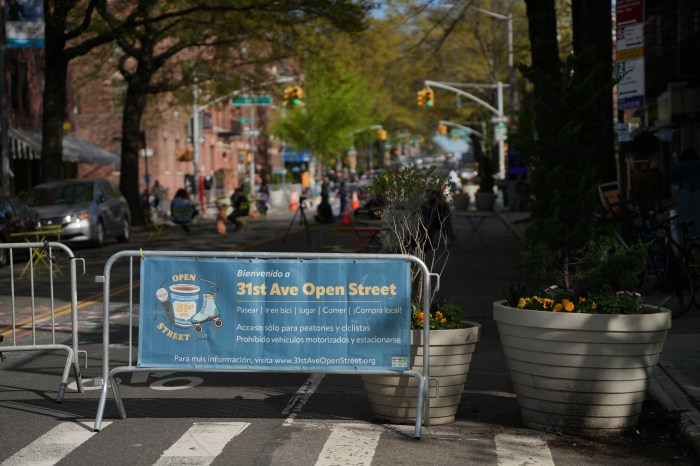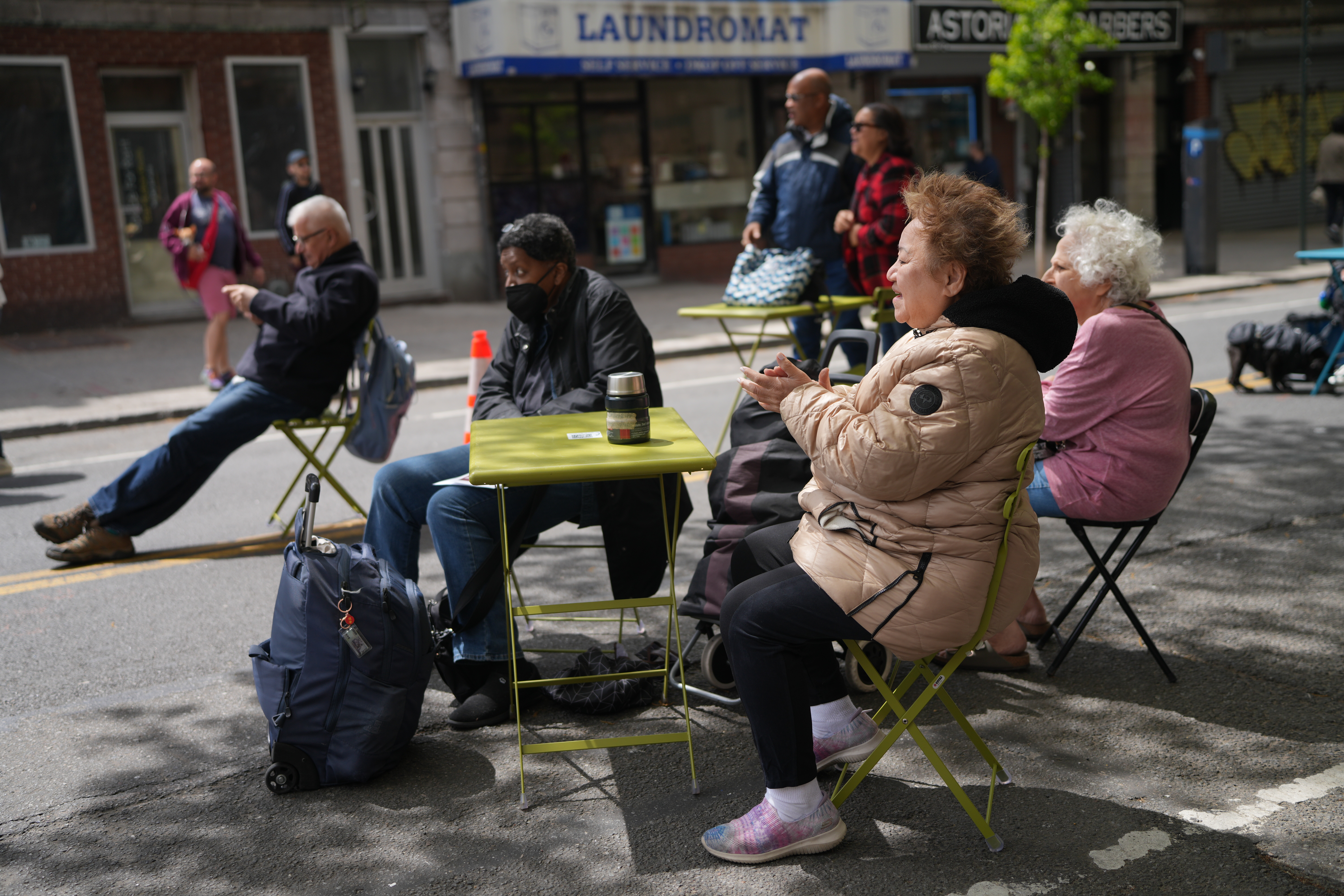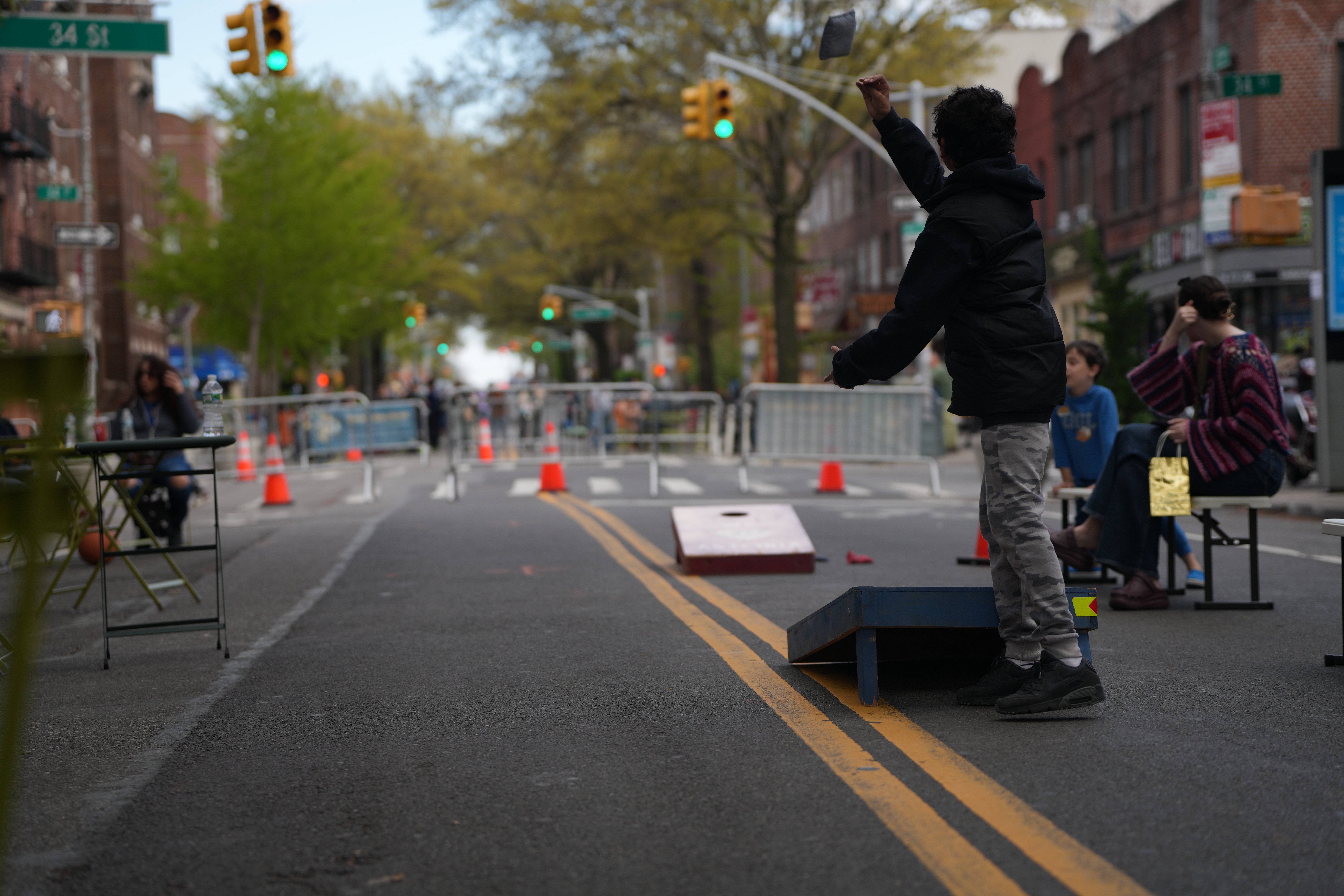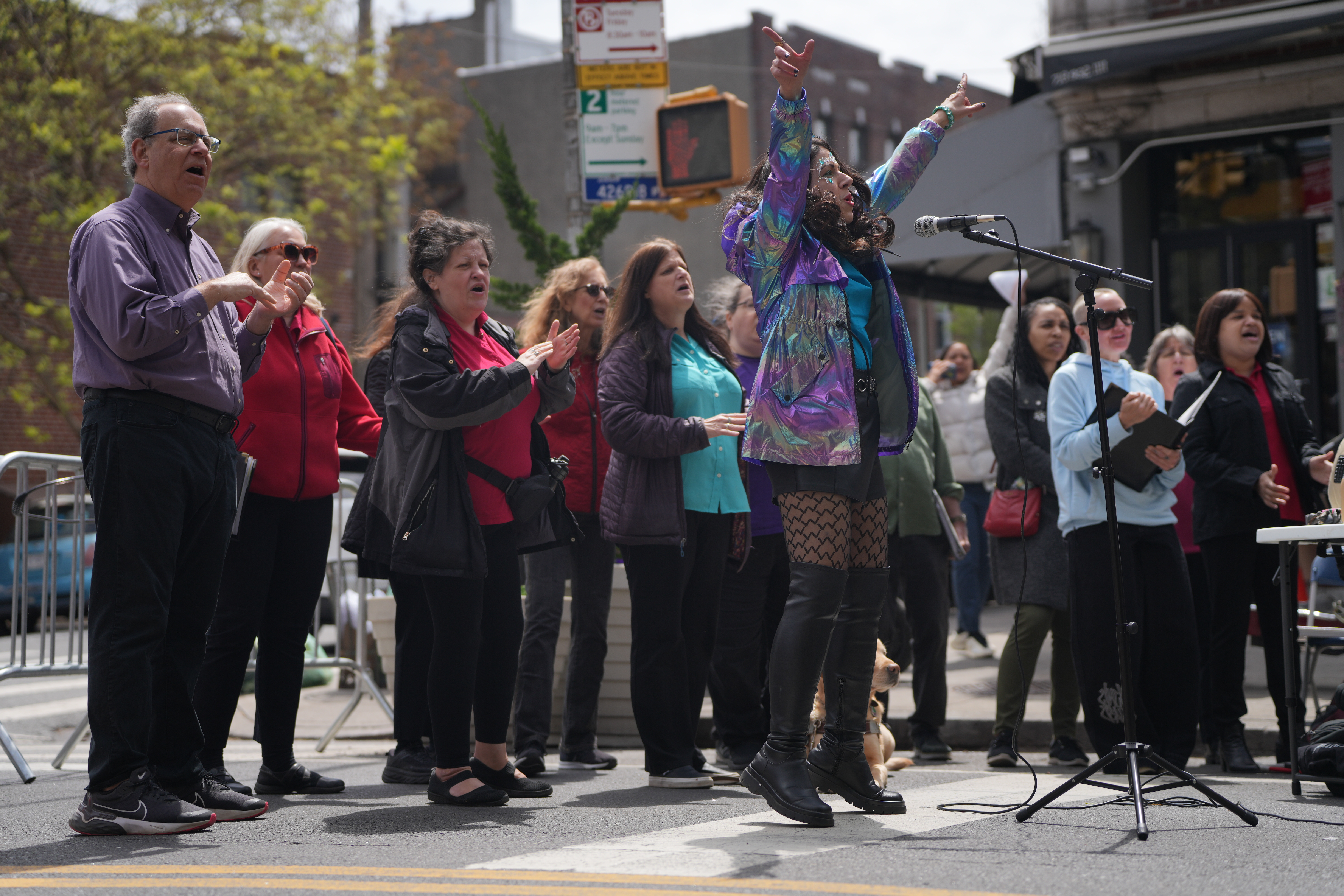
The 31st Ave Open Street Collective is now a registered non-profit organization. Photo by Bobby Feltault
May 15, 2024 By Iryna Shkurhan
Initially created with emergency authorization from the city during the pandemic, the 31st Ave Open Street Collective is cementing its status as a permanent fixture in the Astoria community.
After a year-long effort, the organization recently obtained a tax-exempt nonprofit status just as its fifth season of operation was kicked off in April. Volunteers with the collective say that it’s a big milestone for the continued growth and stability they’re seeking in the community, where otherwise parks and open space are limited.
The collective, like many open street groups across the city, was formed by a group of local residents who wanted to create a free and accessible leisure space in their neighborhood during the pandemic. They pitched their plan to the Department of Transportation (DOT) and the agency provided them with barricades and authorization to close down 31st Avenue, between 33rd and 35th Street.
Since then, every Saturday and Sunday from noon to 8 p.m., the stretch is closed to car traffic and welcomes pedestrians and cyclists to enjoy what they call the “community’s shared backyard.” There’s plenty of seating, several bike corrals, and a range of scheduled programming from performances to games. But the main draw is people don’t need to spend any money to enjoy the space.

Local residents enjoy the free open space sheltered from car traffic. Photo by Bobby Feltault
Not all Open Street projects have evolved into organizations with over a dozen long-term volunteers aimed at creating a permanent presence independent of city bureaucracies. But for those with the 31st Ave Collective, obtaining the nonprofit status was the necessary next step to continue their growth.
“Once you grow to a certain point, it becomes like a limiting factor not to have a certain entity in place to be able to facilitate things like paying for rent and insurance,” said Bobby Feltault, who has been volunteering with the organization for three years now.
“Becoming a tax-exempt organization unlocks a whole lot of potential growth that just wouldn’t be feasible if we didn’t get it,” he added.
The new tax-exempt nonprofit status will open the door for a larger pool of grants that the organization can apply for. For many grants, whether from large companies like ConEdison or philanthropic foundations, being a licensed charity is often a minimum requirement.
Securing additional funding from grants, especially those that offer long-term sustained funding, will allow the collective to expand its offerings and sustain its operating budget over the years.
“Being able to put money into real fixed improvements that we can see on the street is kind of our long term goal and vision there to benefit the community in ways that will last,” said Feltault. “Even if we weren’t here anymore, which is not the plan.”
Another big draw of the nonprofit status is the likelihood that donations from individuals will increase now that they are tax-exempt and eligible for employer matching.
The collective has raised over $13,000 from just a couple hundred people to contribute to their general operating fund. Currently their goal is listed at $20,000.
Feltault noted that volunteers and donors to the organization have frequently asked about being able to donate through their company’s match program. But without the tax exempt status, 31st Ave Open Street was not eligible for matching, which limited their donations.
“It quite literally can effectively double a lot of existing donations that are happening anyways,” noted Feltault.
Obtaining nonprofit status was a year-long process that would not have been possible without the help of the Lawyers Alliance for New York, which spearheaded the complex application process. The nonprofit group provides business and legal services for community organizations to continue making an impact.
Like many others, Feltault felt isolated from his community during the pandemic amid remote work and isolation. But he knew he wanted to find a way to be a direct participant in making his community a better place. For him, the collective was an approachable group with an organized mission he could get behind.
Running the open street has several costs that volunteers have fronted in the past. Their biggest monthly expenses are paying rent to Fresh One Deli to store the equipment they bring out each week and general insurance, which the DOT requires. There are also smaller technological costs associated with marketing and larger costs for special programming.
With a significantly smaller operating budget, the collective has also taken on some duties typically associated with Business Improvement Districts, such as street cleanups and beautification efforts. Volunteers pick up trash from the streets each week to ensure a clean space.
They’ve also taken on beautification projects for the stretch, such as commissioning a local artist to paint a mural and hiring the Astoria Woodworkers Collective to build benches around several street trees, which serve as functional seating and protection for the tree beds.
“Those things cost money. And on top of our other costs, we just want to be able to do that into the foreseeable future,” said Feltault. “Our goal is to continue doing these bigger scale projects, which are really a direct way for us to put all of this capital to work.”

While the DOT provides barricades and street furniture, the collective provides games and events for the community to enjoy. Photo by Bobby Feltault
After the original board members saw people constantly filling the open streets on weekends and utilizing the free programming, they decided to keep growing to ensure the space they created remained. But the growth would not have been possible without the continued efforts of the volunteers, some who had been there from day one and others who had joined more recently.
The Horticultural Society, which is contracted and paid for by the DOT, places its employees at Open Street sites to oversee the functional elements—barricades to prevent cars from entering and street furniture for sitting. However, the volunteers themselves organize events and provide games to play and activities for children.
They’ve facilitated regularly scheduled programming such as The Connected Chef’s Urban Farm Stand and The Rolling Library‘s free book fair. Some weekends, they’ll have yoga, live music, and clothing swaps, which they actively promote on their social media pages.

The collective organizes a range of events for the community, including performances. Photo by Bobby Feltault
“That energy, that spirit, has basically been the thing that has been driving us all forward,” said Feltault. “And it’s a huge reason why now we are the size of an organization that we are coming from just like a single digit number of people who agreed to move barricades around if the DOT dropped them off.”
One Comment

Get that crap off.. Roads are for cars. Go to a park.